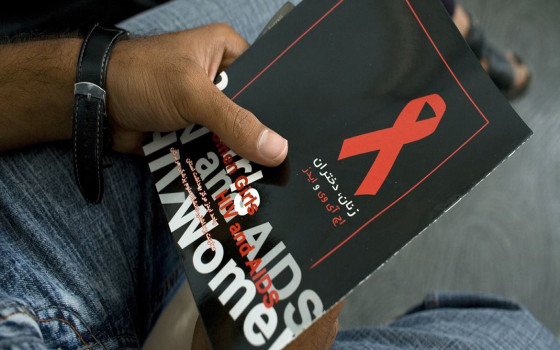
The first long-acting preventive injection against AIDS. The World Health Organization described it as a revolutionary treatment and should be made available in pharmacies and clinics.

- Europe and Arabs
- Tuesday , 15 July 2025 12:5 PM GMT
Geneva: Europe and the Arabs
The World Health Organization (WHO) has stressed the need to make a revolutionary drug for preventing HIV (AIDS) immediately available in pharmacies, clinics, and through online consultations. This drug requires only two injections annually to provide near-complete protection against the virus and the development of AIDS.
In new guidelines issued on Monday, the WHO said the injectable drug lenacapavir is a long-acting, highly effective antiretroviral treatment, representing an alternative to daily oral pills and other short-acting options. According to the UN Daily News, WHO Director-General Tedros Adhanom Ghebreyesus said: "Although an HIV vaccine is still far from being achieved, lenacapavir is the best option: a long-acting antiretroviral that has been shown to prevent nearly all HIV infections among people at risk." Rapid Test Kits
WHO's support for this injectable drug is important given the stagnation in HIV prevention efforts worldwide. To facilitate people receiving the injection at home, the UN agency also recommends the use of rapid test kits for the disease, rather than "complicated and expensive procedures."
According to the agency, 1.3 million people became infected with AIDS in 2024; the groups most affected were sex workers, men who have sex with men, transgender people, people who inject drugs, prisoners, and children and adolescents.
During the 13th International AIDS Society Conference on Science and HIV, held in Kigali, Rwanda, Dr. Tedros emphasized that WHO is "committed to working with countries and partners to ensure that this innovation reaches communities as quickly and safely as possible."
The organization's recommendation for the lenacapavir injection is also consistent with the US health authorities' approval in June. A Call for Action
Although access to the lenacapavir injection remains limited outside of clinical trials today, the World Health Organization (WHO) has urged governments, donors, and partners to integrate the injection "immediately" into national HIV prevention programs.
Other HIV prevention options supported by WHO include daily oral tablets, cabotegravir injections—which are injected every two months—and the difebvrine vaginal ring, as part of a growing number of tools to end AIDS.
The Funding Dilemma
Amid dramatic cuts in funding for global efforts to end AIDS—including the 2003 US President's Emergency Plan for AIDS Relief, which focuses on combating the disease in Africa—WHO has also issued new practical guidance on how to sustain priority AIDS services. “We have the tools and knowledge to end AIDS,” said Dr. Meg Doherty, Director of the WHO Global Programme on AIDS, Hepatitis, and Sexually Transmitted Diseases. “What we need now is bold implementation of these recommendations, based on equity and supported by communities.”
A Global Health Problem
By the end of 2024, an estimated 40.8 million people were living with HIV, 65% of whom were in Africa. Nearly 630,000 people died from HIV-related causes globally, and an estimated 1.3 million people were living with HIV, including 120,000 children.
On the positive side, access to HIV medicines continues to increase, with 31.6 million people receiving treatment in 2024, compared to 30.3 million the previous year. Without antiretroviral medicines, HIV attacks the body’s immune system, eventually leading to AIDS.












No Comments Found